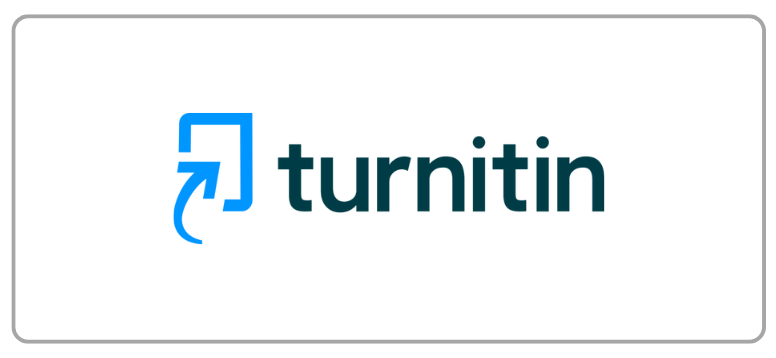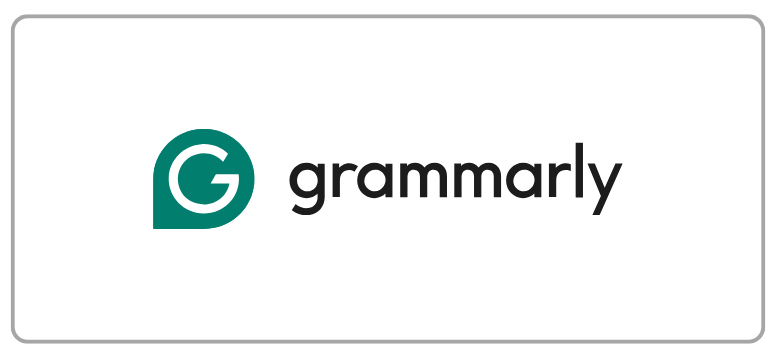Questioning Strategies in English Literature Lectures in an Indonesian University
DOI:
https://doi.org/10.21512/lc.v14i2.6834Keywords:
questioning strategies, literature lectures, universityAbstract
The research aimed to investigate the questioning strategies used by lecturers in English literature lectures an Indonesian university and how they were manifested. Applying the qualitative approach and Rido, Ibrahim, and Nambiar’s conceptual framework in 2015, the research analyzed three lectures of English literature consisting of prose, literary criticism, and drama. Data were collected through 300 minutes of video-recordings. The findings reveal that the lecturers employ various types of questions such as display, referential, follow-up, and rhetorical questions. The lecturers manifest the questions by rephrasing questions first, then nominating students, asking questions to the entire class, encouraging students to initiate questions, and moving closer to students when asking questions. The questioning strategies help the lecturers to lead the discussion, check students’ understanding, offer the students to share ideas, and improve students’ participation. As a result, the students become active in expressing thoughts, sharing ideas, and even initiating questions. The research can be a guideline for lecturers to create meaningful and interactive lectures to produce competent and critical students.Â
References
Afrianto, & Gulö, I. (2019). Revisiting English Competence at Hotel. Teknosastik : Jurnal Bahasa Dan Sastra, 17(1), 35. https://doi.org/10.33365/ts.v17i1.248
Blikstad-Balas, M. (2017). Key challenges of using video when investigating social practices in education: contextualization, magnification, and representation. International Journal of Research and Method in Education, 40(5), 511–523. https://doi.org/10.1080/1743727X.2016.1181162
Cahyono, S. P., & Pribady, I. Y. (2020). Scaffolding in Narrative Learning: Appraisal Analysis in Teachers’ Talk. Teknosastik, 18(1), 59. https://doi.org/10.33365/ts.v18i1.553
Creswell, J. W., & Cresswell, J.D. (2018). Research design : qualitative, quantitative, and mixed methods approaches (4th ed.). SAGE Publications, Inc.
DeWaelsche, S. A. (2015). Critical thinking, questioning and student engagement in Korean university English courses. Linguistics and Education, 32, 131–147. https://doi.org/10.1016/j.linged.2015.10.003
Fard, S. F. (2016). A Short Introduction to Literary Criticism. International Journal of Humanities and Cultural Studies, 3, 328–337.
Hauser, E. (2006). Conversation Analysis: Studies from the First Generation. In Journal of Pragmatics. John Benjamins.
Almohizea, N. I. (2018). An Investigation of Oral Interaction in English as a Foreign Language Classroom. International Journal of Language and Linguistics, 6(3), 51-60. https://doi.org/10.11648/j.ijll.20180603.11
Jefferson, G. (2004). Glossary of transcript with an introduction. In G.H. Lerner (Ed). Conversation Analysis: Studies from the First Generation (pp.13-31). Amsterdam: John Benjamin.
Johnson, J. H., & Picciuolo, M. (2020). Interaction in spoken academic discourse in an EMI context: The use of questions. International Conference on Higher Education Advances, 2020-June, 211–219. https://doi.org/10.4995/HEAd20.2020.11018
Kiramba, L. K., & Smith, P. H. (2019). “Her sentence is correct, isn’t it?â€: Regulative discourse in English medium classrooms. Teaching and Teacher Education, 85, 105–114. https://doi.org/10.1016/j.tate.2019.06.011
Leavy, P. (2017). Research Design: Quantitative, Qualitative, Mixed Method, Arts-Based, and Community-Based Participatory Research Approaches.
Liu, Y. (2019). Using reflections and questioning to engage and challenge online graduate learners in education. Research and Practice in Technology Enhanced Learning, 14(1). https://doi.org/10.1186/s41039-019-0098-z
Mackey, A. (1999). Input, Interaction, and Second Language Development : An Empirical Study of Question Formation in ESL. Studies in Second Language Acquisition, 21, 557–587. https://doi.org/10.1016/S1060-3743(99)80112-X
Mahmud, M. (2017). Communicative styles of English students at the State University of Makassar. GEMA Online Journal of Language Studies, 17(1), 223–238. https://doi.org/10.17576/gema-2017-1701-13
Meguid, E.A. & Collins, M. (2017). Students’ perceptions of lecturing approaches: traditional versus interactive teaching. Advances in Medical Education and Practice, 8, 229-241.
Merriam, S. B., & Tisdell, E.J. (2016). Qualitative Research : A Guide to Design and Implementation. Jossey-Bass.
Milawati, M., & Suryati, N. (2019). EFL Teacher’s Oral Questioning: Are Her Questions and Strategies Effective? Dinamika Ilmu, 19(1), 37–55. https://doi.org/10.21093/di.v19i1.1545
NACE. (2020). Job Outlook 2020. www.naceweb.org %7C
Rana, A.M.K., Bashir, I., & Abbas, F. (2020). English for Future Employment: The perception of Pakistani Academia. Hamdard Islamicus, 43 (2), 886-896.
Ranta, R., & Harmawati, D. (2017). Analyzing Teacher’s Instructional and Nonverbal Communication in EFL Classroom. Lingual: Journal of Language and Culture, 4(2), 26. https://doi.org/10.24843/ljlc.2017.v04.i02.p05
Reid, D. A., Simmt, E., Savard, A., Suurtamm, C., Manuel, D., Lin, T. W. J., Quigley, B., & Knipping, C. (2015). Observing observers: Using video to prompt and record reflections on teachers’ pedagogies in four regions of Canada. Research in Comparative and International Education, 10(3), 367–382. https://doi.org/10.1177/1745499915580425
Rido, A. (2017). What Do You See Here From This Picture?: Questioning Strategies of Master Teachers in Indonesian Vocational English Classrooms. TEFLIN Journal, 28(2), 193–211. https://doi.org/10.15639/teflinjournal.v28i2/193-211
Rido, A. (2019). What Is Newston’s Law of Inertia? : The Use Of Questions In Science Lectures. LITERA, 18(2), 312–325.
Rido, A. (2020a). English for University Graduate Employability: Students and Employers’ Voices. Advances in Social Science, Education and Humanities Research, 430, 6–10. https://doi.org/10.2991/assehr.k.200406.002
Rido, A. (2020b). Why They Act The Way They Do?: Pedagogical Practices of Experienced Vocational English Language Teachers in Indonesia. International Journal of Language Education, 4(2), 24. https://doi.org/10.26858/ijole.v4i2.9935
Rido, A., Ibrahim, N., Nambiar, R. M. K. (2015). Interaction Strategies of Master Teachers in Indonesian Vocational Classroom : A Case Study. 3L: The Southeast Asian Journal of English Language Studies, 21(3), 85–98.
Rido, A., Kuswoyo, H., Ayu, R. (2020). Interaction Management Strategiesin English Literature Lectures in Indonesian University Setting. Indonesian Journal of EFL and Linguistics, 5(2), 315–337.
Rido, A., Sari, F.M., Suri, RAM., Duantoro, H. (2015). Discourse Structure of Lecture in L2 in the Indonesian Tertiary Context. Proceedings of ISELT FBS Universitas Negeri Padang, 5, 11–20.
Saleh, S. E. (2019). Critical Thinking As A 21st Century Skill: Conceptions, Implementation, and Challenges in the EFL Classroom. European Journal of Foreign Language Teaching, 4(1), 1–16. https://doi.org/10.5281/zenodo.2542838
Sari, F. M. (2019). Patterns of Teaching-Learning Interaction in the EFL Classroom. Teknosastik, 16(2), 41. https://doi.org/10.33365/ts.v16i2.139.
Shcheglova I. A. (2019) Can Student Engagement in Extracurricular Activities Facilitate the Development of Their Soft Skills? Monitoring of Public Opinion: Economic and Social Changes. Vol. 6. p. 111—121. https://doi.org/10.14515/monitoring.2019.6.07.
Shi, D. (2013). Teacher-student interaction in novel and poetry classrooms in the Hong Kong tertiary setting. Theory and Practice in Language Studies, 3(11), 1975–1982. https://doi.org/10.4304/tpls.3.11.1975-1982
Simpson, R., Lee, D., & Leicher, S. (2002). MICASE Manual. In MI: English Language Institute. The university of Michigan.
Tan, Z. (2007). Questioning in Chinese university EL classrooms: What lies beyond it? RELC Journal, 38(1), 87–103. https://doi.org/10.1177/0033688206076161
Wangru, C. (2016). The Research on Strategies of College English Teachers Classroom Questioning. International Education Studies, 9(8), 144. https://doi.org/10.5539/ies.v9n8p144
Yang, H. (2017). A Research on the Effective Questioning Strategies in Class. Science
Journal of Education, 5(4), 158. https://doi.org/10.11648/j.sjedu.20170504.16
Zhang, Z., Zhang, B., Shi, C., Qi, B., Zhou, J., Zhang, R., Li, J., Hu, Y., Sun, N., & Meng, J. (2018). Case-Based Teaching Approach to Explore the Impact of Effective Questioning on the Teaching of “Toxicology.†Proceedings - 9th International Conference on Information Technology in Medicine and Education, ITME 2018, 6, 411–414. https://doi.org/10.1109/ITME.2018.00098
Ziyaeemehr, A. (2016). Use of Questioning Techniques and the Cognitive Thinking Process Involved in Student-Lecturer Interactions. International Journal of Humanities and Cultural Studies, 3 (1), 1427-1442
Downloads
Published
How to Cite
Issue
Section
License
Copyright (c) 2020 Akhyar Rido, Heri Kuswoyo, Sandi Nuansa

This work is licensed under a Creative Commons Attribution-ShareAlike 4.0 International License.
Authors who publish with this journal agree to the following terms:
a. Authors retain copyright and grant the journal right of first publication with the work simultaneously licensed under a Creative Commons Attribution License - Share Alike that allows others to share the work with an acknowledgment of the work's authorship and initial publication in this journal.
b. Authors are able to enter into separate, additional contractual arrangements for the non-exclusive distribution of the journal's published version of the work (e.g., post it to an institutional repository or publish it in a book), with an acknowledgment of its initial publication in this journal.
c. Authors are permitted and encouraged to post their work online (e.g., in institutional repositories or on their website) prior to and during the submission process, as it can lead to productive exchanges, as well as earlier and greater citation of published work.
USER RIGHTS
All articles published Open Access will be immediately and permanently free for everyone to read and download. We are continuously working with our author communities to select the best choice of license options, currently being defined for this journal as follows: Creative Commons Attribution-Share Alike (CC BY-SA)



















